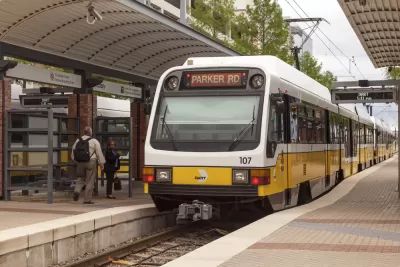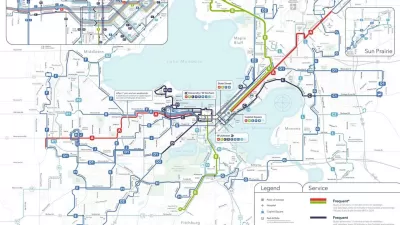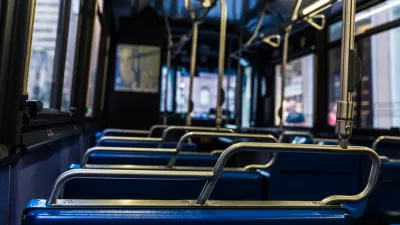The New York MTA isn't the only transit system to spend valuable time evaluating ways to evaluate service, and it certainly won't be the last. TransitCenter suggests one metric to end these kinds of debates.

A post by TransitCenter examines the question of how to properly measure transit performance, in response to a "longstanding internal debate over how best to evaluate subway performance" at the New York Metropolitan Transportation Authority (MTA).
The TransitCenter post argues that in debating whether to use "on-time performance" or "wait assessment" to measure the performance of the city's subway system, the MTA is having the wrong debate.
The agency could quickly adopt a performance indicator that would better reflect reality from the rider point of view and help the MTA more effectively manage its service — excess journey time. Lauded by transit experts around the world as best practice, excess journey time legibly measures the types of delay mentioned above, and can be calculated using information the MTA already collects and analyzes.
The remainder of the post explains the "excess journey time" metric in more detail and makes the case for the MTA to quickly adopt the metric and get back to work on improving the system.
FULL STORY: Memo To MTA Board: You’re Measuring Performance Wrong. Here’s What To Do Instead.

Planetizen Federal Action Tracker
A weekly monitor of how Trump’s orders and actions are impacting planners and planning in America.

San Francisco's School District Spent $105M To Build Affordable Housing for Teachers — And That's Just the Beginning
SFUSD joins a growing list of school districts using their land holdings to address housing affordability challenges faced by their own employees.

The Tiny, Adorable $7,000 Car Turning Japan Onto EVs
The single seat Mibot charges from a regular plug as quickly as an iPad, and is about half the price of an average EV.

Trump Approves Futuristic Automated Texas-Mexico Cargo Corridor
The project could remove tens of thousands of commercial trucks from roadways.

Austin's First Single Stair Apartment Building is Officially Underway
Eliminating the requirement for two staircases in multi-story residential buildings lets developers use smaller lots and more flexible designs to create denser housing.

Atlanta Bus System Redesign Will Nearly Triple Access
MARTA's Next Gen Bus Network will retool over 100 bus routes, expand frequent service.
Urban Design for Planners 1: Software Tools
This six-course series explores essential urban design concepts using open source software and equips planners with the tools they need to participate fully in the urban design process.
Planning for Universal Design
Learn the tools for implementing Universal Design in planning regulations.
Smith Gee Studio
City of Charlotte
City of Camden Redevelopment Agency
City of Astoria
Transportation Research & Education Center (TREC) at Portland State University
US High Speed Rail Association
City of Camden Redevelopment Agency
Municipality of Princeton (NJ)





























